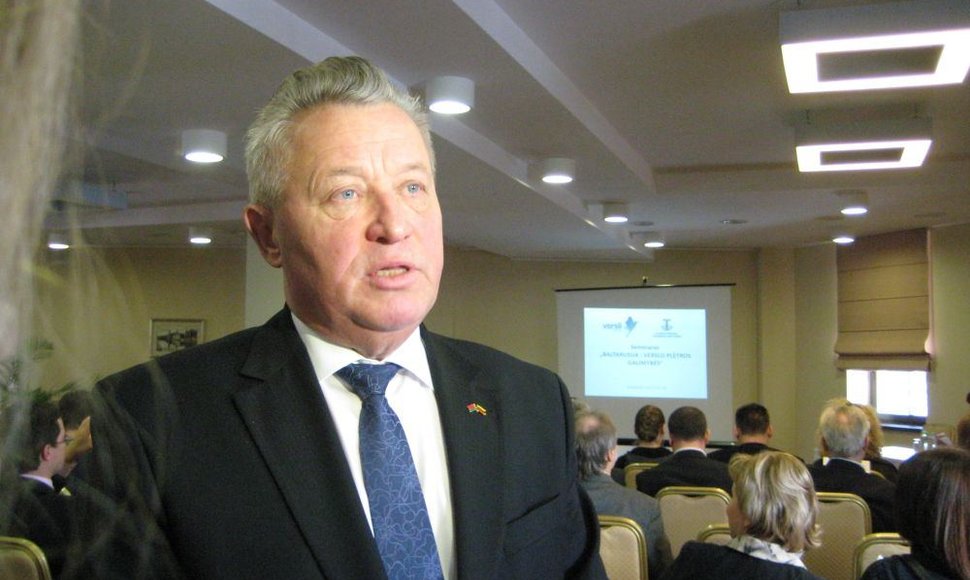During the meeting, Foreign Vice-Minister Rolandas Kriščiūnas urged Belarus to follow international commitments and seek a constructive dialogue in the Astravyets NPP project, the Foreign Ministry said.
"No compromise can be made at the expense of nuclear safety. The incomprehensible urgency that has been reported lately cannot be tolerated, and meeting of international commitments, first of all, implementation of the Espoo Convention, cannot be just a formality in the case of the Belarusian NPP," Kriščiūnas said in a press release.
The vice-minister emphasized that the main point made by Lithuania is the safety of the Belarusian plant, adding that the objective will be consistently pursued, as the project may have an effect upon citizens of not only Belarus, but also Lithuania, as well as their right to a safe environment.
It is Lithuania's belief that the attention of international organizations and the public to the Belarusian NPP project benefits Belarus, as well, and is consistent with the country's interest of building a safe facility.
The Foreign Ministry recalled that the Espoo Convention Implementation Committee in mid-April ruled in the light of the documents submitted by Belarus that Belarus had failed to provide sufficient environmental impact assessment information to Lithuania about the Astravyets project, thus violating the Espoo Convention. The committee concluded that consultations are only valuable, if the requested information has been presented.
"In June, Belarus provided Lithuania with a Lithuanian translation of the 2011 environmental impact report, which has already received a negative conclusion of the Espoo Committee, and unilaterally decided to hold a public presentation in Astravyets," the Foreign Ministry said.
Lithuanian officials have not received answers in connection to Belarus' failure to carry out seismologic tests, although severe earthquakes were registered in the territory in late 1800s and early 1900s, said the diplomat. Lithuania is also expecting answers about cooling of the nuclear reactor – under the Belarusian design, the reactor should be cooled with water of River Neris, although the site is above the river level and 10 kilometers from the river, thus increasing the probability of malfunction of the cooling system.
The nuclear power plant in Astravyets should be built by the Russian company Rosatom. Belarus plans to have the utility operational in 2020.












